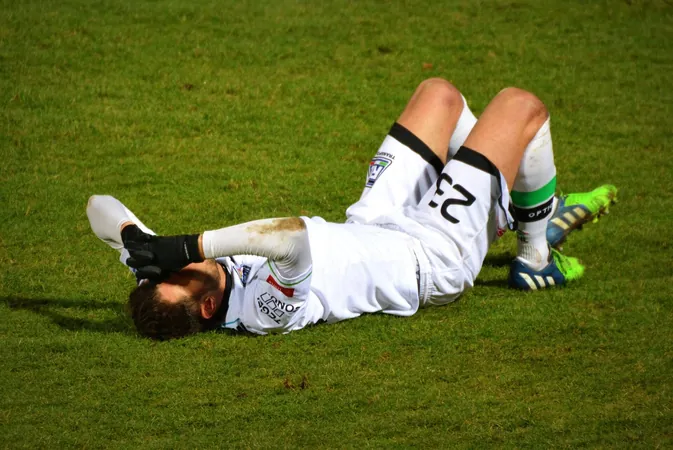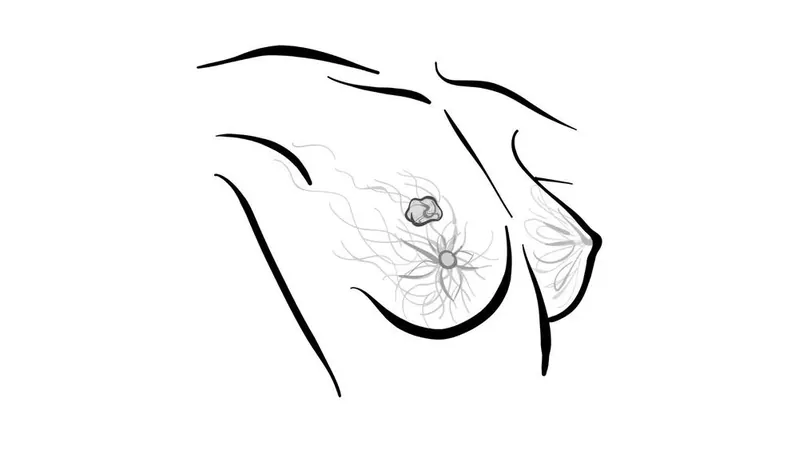
Family History of Mental Illness Worsens Aggression Risk in Chronic Traumatic Encephalopathy Patients!
2024-11-27
Author: Ming
Groundbreaking Research Findings
A groundbreaking study has unveiled alarming connections between chronic traumatic encephalopathy (CTE) and aggression, particularly among individuals with a familial history of mental health issues. The research, published in the esteemed journal Neurology on November 27, 2024, provides critical insights into how these two factors might intertwine to amplify aggressive behaviors in middle-aged adults.
Understanding CTE
CTE is notoriously known as a neurodegenerative disease often resulting from repeated head injuries. It is predominantly observed in contact sports athletes and military personnel, leading to severe mood changes and potentially, dementia. Symptoms include depression, anxiety, and irritability, but the newfound link points to heightened aggression in those with a significant family history of mental illness.
Key Insights from Dr. Jesse Mez
Dr. Jesse Mez of Boston University Chobanian & Avedisian School of Medicine, a leading author of the study, noted, "The combination of CTE and a family history of mental illness seems to create a cumulative risk for aggression that is far greater than either factor alone."
Study Cohort and Results
The study centered around a cohort of 845 men—many of whom had sustained repetitive head trauma through sports or military service. Remarkably, 70% of these individuals were found to have CTE posthumously, with nearly half reporting a family history of psychiatric disorders such as major depression and bipolar disorder.
Aggression Assessment
During the research, family members were interviewed regarding the participants' aggressive behaviors, including instances of extreme arguments or physical altercations. Those with both CTE and a familial predisposition to mental illness exhibited, on average, higher aggression scores compared to their counterparts without a family history.
Significant Findings in Middle-Aged Participants
The most striking findings emerged in participants aged 40 to 59, suggesting that early identification of risk factors can potentially allow for targeted interventions. After adjusting for confounding factors like the duration of contact sports play and military exposure, this subgroup demonstrated an average increase of 0.64 standard deviations in aggression scores—underscoring the dangerous synergy between CTE and inherited mental health issues.
Without CTE, No Increased Risk
Interestingly, individuals without CTE did not show any heightened risk for aggression merely due to family mental illness history, reinforcing the unique vulnerability CTE players face.
Implications for Treatment
Dr. Mez elaborated, "Understanding the role of familial background can help us predict aggressive symptoms in individuals who have suffered from repeated head injuries, effectively pinpointing those who may require immediate intervention and tailored treatment strategies."
Limitations and Future Research
While the study opens a vital dialogue around CTE and aggression, it also faces limitations, mainly due to its reliance on potentially biased recollections from family members about past behaviors. Further research could involve direct assessments to fortify findings.
Conclusion and Call to Action
This study serves as a clarion call for sports organizations, military institutions, and families to take heed of the striking implications surrounding mental health history and aggressive tendencies, particularly for those with a history of head trauma. Addressing these intertwined issues might indeed be crucial in fostering positive outcomes for affected individuals.



 Brasil (PT)
Brasil (PT)
 Canada (EN)
Canada (EN)
 Chile (ES)
Chile (ES)
 España (ES)
España (ES)
 France (FR)
France (FR)
 Hong Kong (EN)
Hong Kong (EN)
 Italia (IT)
Italia (IT)
 日本 (JA)
日本 (JA)
 Magyarország (HU)
Magyarország (HU)
 Norge (NO)
Norge (NO)
 Polska (PL)
Polska (PL)
 Schweiz (DE)
Schweiz (DE)
 Singapore (EN)
Singapore (EN)
 Sverige (SV)
Sverige (SV)
 Suomi (FI)
Suomi (FI)
 Türkiye (TR)
Türkiye (TR)